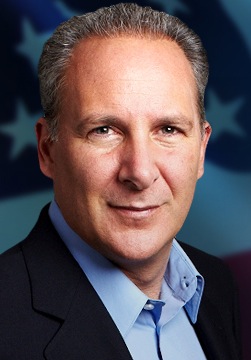Don't Buy the Dow's New High
This week, the professional stock market boosters, who masquerade as wise market commentators, filled the airwaves with celebratory musings on the significance of a record high Dow. Many spoke of it as the milestone that will usher in a new bull market reminiscent of the one which roared during the 1990s. However, the Dow's new high is merely an inflationary illusion. The fact that Wall Street universally ignores inflation adjustments with respect to the Dow, while consistently qualifying oil prices in inflation adjusted terms, reveals the bullish bias of an industry dependent on optimism.
In the first place, adjusted for the CPI the Dow's January, 2000 peak would equate to over 14,000 in today's dollars. Of course, since the CPI understates the true inflation rate by at least 2-3 percentage points annually, the Dow Jones would likely have to be over 16,000 today to deliver the same purchasing power that it did then. Ignoring inflation and looking instead from a foreign exchange perspective the Dow is also far from a real high. Priced in British pounds, Canadian or Australian dollars, or euros, at 11,850 the Dow is still below its 2000 peak by approximately 25%, 26% and 32% respectively.
In the second place, the Dow Jones consists of just thirty stocks. If you look at broader market averages, such as the S& P 500 or the NASDAQ Composite, the former is about 13% below its 2000 high, while the latter is 55% below. When those numbers are adjusted for rises in the CPI, in real terms the indexes are below their 2000 peaks by more than 27% and 63% respectively. Of course, those numbers would be far higher were we using a more accurate inflation measure.
While the financial media is quick to proclaim a new bull market in stocks, they have simultaneously proclaimed an end to the current bull markets in gold and oil. Both calls are premature, unsupported by the facts, and more representative of wishful thinking than legitimate forecasting.
Since hitting its nominal peak in January 2000, the Dow Jones has lost just over half of its value relative to gold, even after the recent surge in the Dow and the dip in gold. It should be clear, therefore, that the real bull market is in gold, not the Dow. The way I see it, nothing has happened during the last several months to reverse these trends. From my perspective, we are simply experiencing normal counter-trend moves that typify bull and bear markets alike.
The most significant aspect of such counter-trend moves is their impact on market psychology. Bull market corrections produce fear, while bear market corrections produce hope. Among gold and oil investors, the fear is that the move is over. Those who got in early sell to preserve what remains of their gains, while recent entrants sell to mitigate their losses. Stock market investors buy more hoping to finally recover their losses.
However, neither emotion is likely to be validated. In fact, secular market trends generally continue until both emotions are completely exhausted. Bull markets will persist until all fear is eliminated; producing euphoria, while bear markets will persist until all hope is lost, producing despair. The Dow's new high, and the media hype surrounding it, should help create enough optimism for a major top to be established. Similarly, the recent sharp drops in the prices of gold and oil should unleash enough pessimism for significant bottoms to emerge.
The decree of leverage in today's markets tends to exaggerate the magnitude and speed of corrections. Hedge funds and other speculative players are generally trend-followers and are quick to exit when the winds appear to be shifting. It is important to remember that speculators do not create the underlying trends; they simply tag along for the ride. However, as their frequent entrances and exits add to short-term volatility, long-term investors should not follow their lead.
The best strategy for investors is to take advantage of the opportunities short-term speculators create. In other words, buy gold and oil. For the best way to take advantage of the big drop in oil and gas prices, download my must-read, free report on Canadian Energy Trusts here.

















